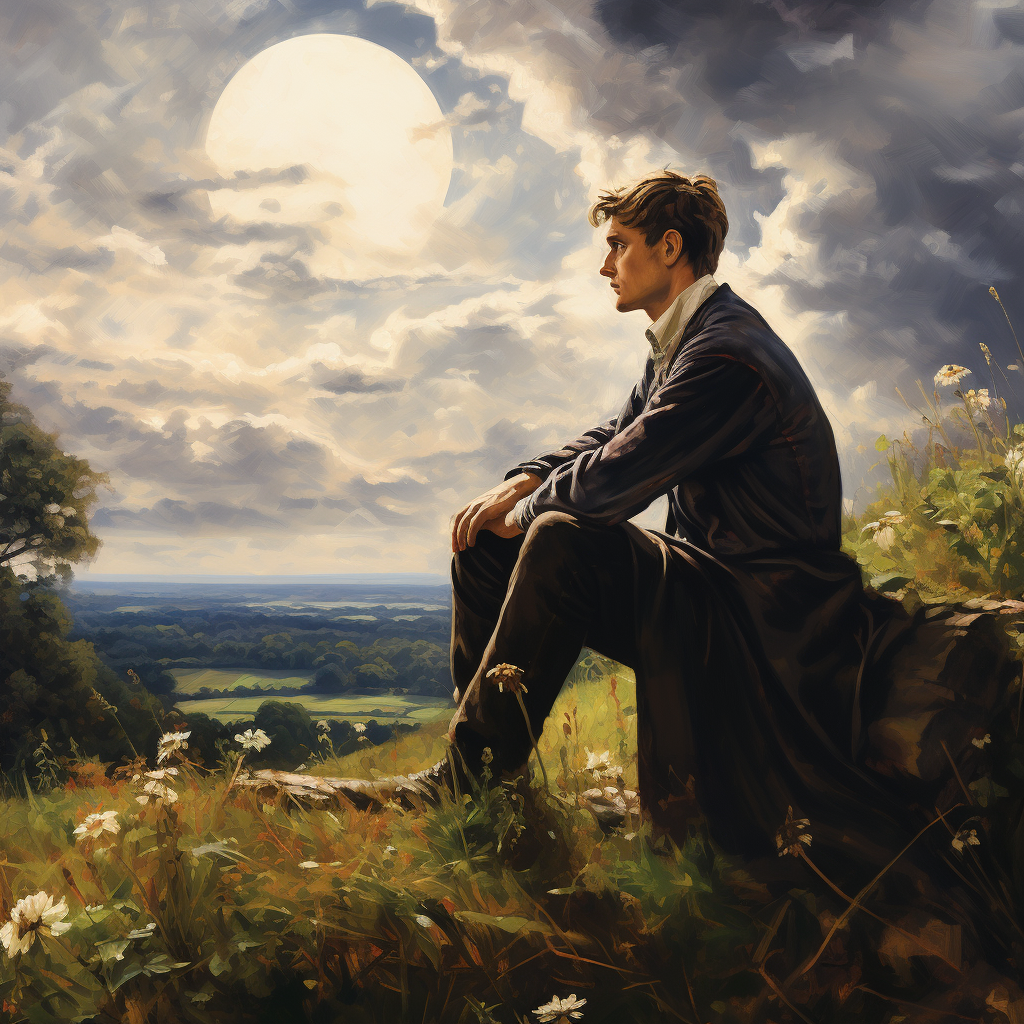A young philosopher, grapples with existential questions that push him into an isolating labyrinth of thoughts. Now, with the help of his childhood friend, he embarks on a journey to balance the profound with the mundane, and discover a life beyond definitions.
In the characteristic vein of English countryside, where the mists often blurred the contours of reality, there lived a young man of some peculiarity. His name was Andrew, an individual who, by his early twenties, was more familiar with the writings of Nietzsche and Wittgenstein than with the banter of the village pub. His obsession with philosophy, with the mutable nature of reality, and the ambiguity of human definitions, gave him a certain distinction. Yet, this same fascination precipitated an isolation, a rift between him and the world he so ardently questioned.
Andrew’s home, a quaint stone cottage inherited from his deceased parents, was more a library than a residence. The bookshelves groaned under the weight of philosophical treatises and essays, the air held the fragrance of ink and parchment, and every nook and cranny bore evidence of his incessant reading. From his solitary sanctuary, Andrew ventured into the depths of thought, into a world where nothing was real, everything was relative, and certainty a chimerical notion.
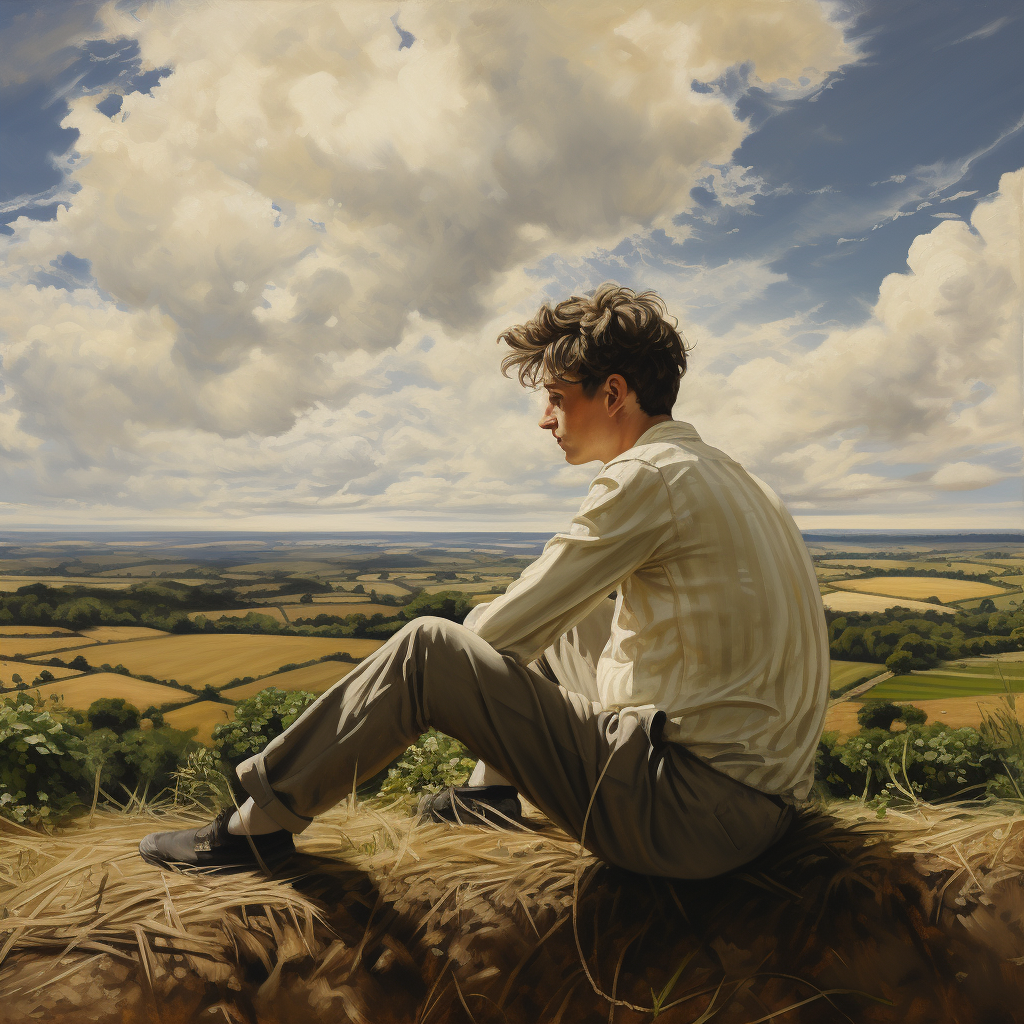
One might think this inclination would lend him an air of profundity, but alas, it did quite the opposite. His friends found his incessant questioning baffling, even irksome. For instance, the simple query, “Andrew, do you think this cake is good?” would elicit an inquisition: “What, dear friend, do you mean by ‘good’? And what, indeed, do we mean by ‘cake’? Is it not merely an agglomeration of matter? Or perhaps a subjective perception, varying in form and taste from one individual to another?”
To the villagers, his responses were not the musings of a philosophical mind, but the ramblings of a boy lost in thought, disengaged from the simple pleasures of life. Conversations grew stilted, social calls dwindled, and the line of demarcation between Andrew and the rest of the village became starkly apparent.
One day, Emily, a kindly woman of his age and a friend since childhood, decided to confront him. They sat in the garden, a setting sun painting the sky in hues of crimson and gold. “Andrew,” she said, “your questions are not wrong, but they’re making it impossible for us to connect with you. Life isn’t just about precise definitions. It’s about feeling, experiencing. It’s about the simple joy of eating a cake, not defining it.”
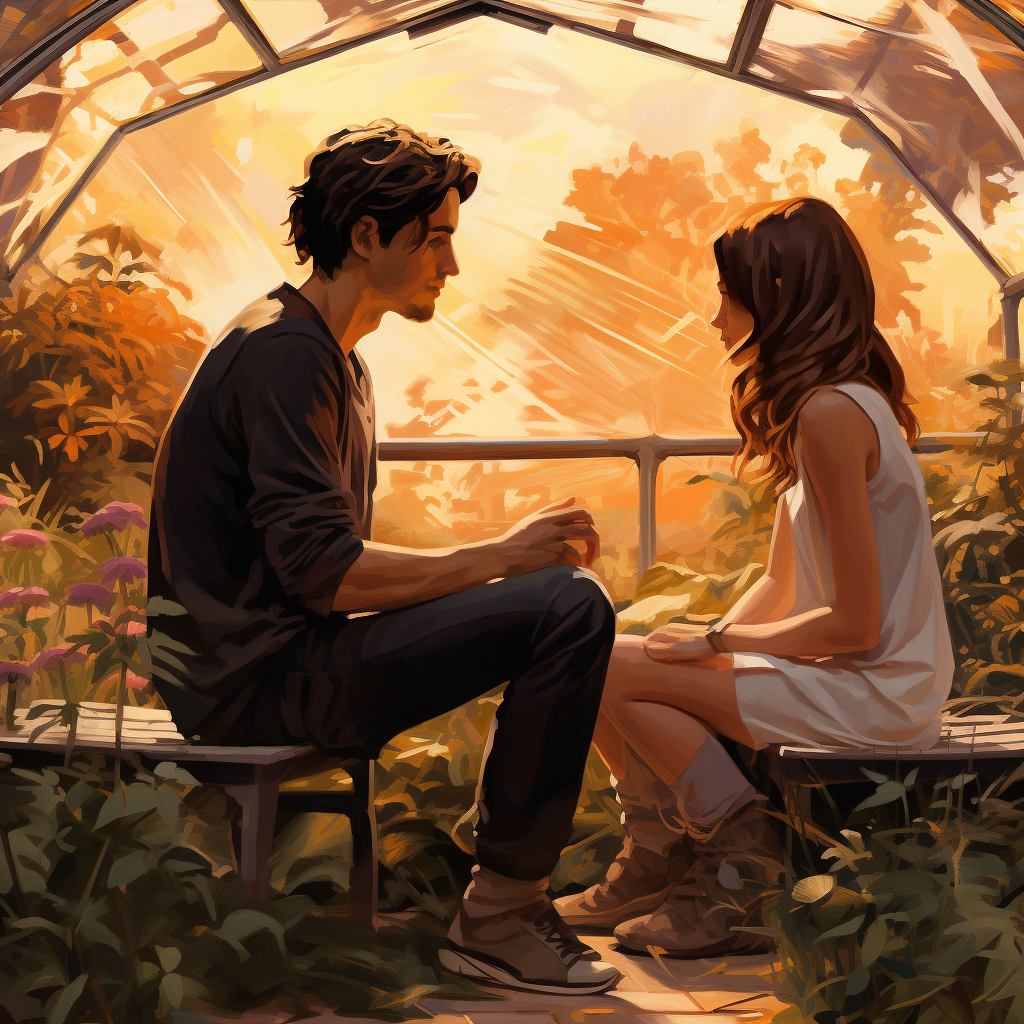
Andrew gazed at her, his mind churning, processing her words. He had spent so much time questioning the nature of existence, he had failed to exist in any meaningful way. He had been living in his mind, not in the world. The revelations left him disoriented, but also filled him with a strange, new sensation.
“Emily,” he asked, hesitatingly, “if I have spent all this time ignoring these feelings, these experiences, could I learn to appreciate them? To… live?”
Emily smiled. “Why, Andrew,” she said, her eyes twinkling, “I believe that’s the first question you’ve asked that doesn’t require a philosophical treatise to answer. Yes, you can. And I’ll be here to help you.”
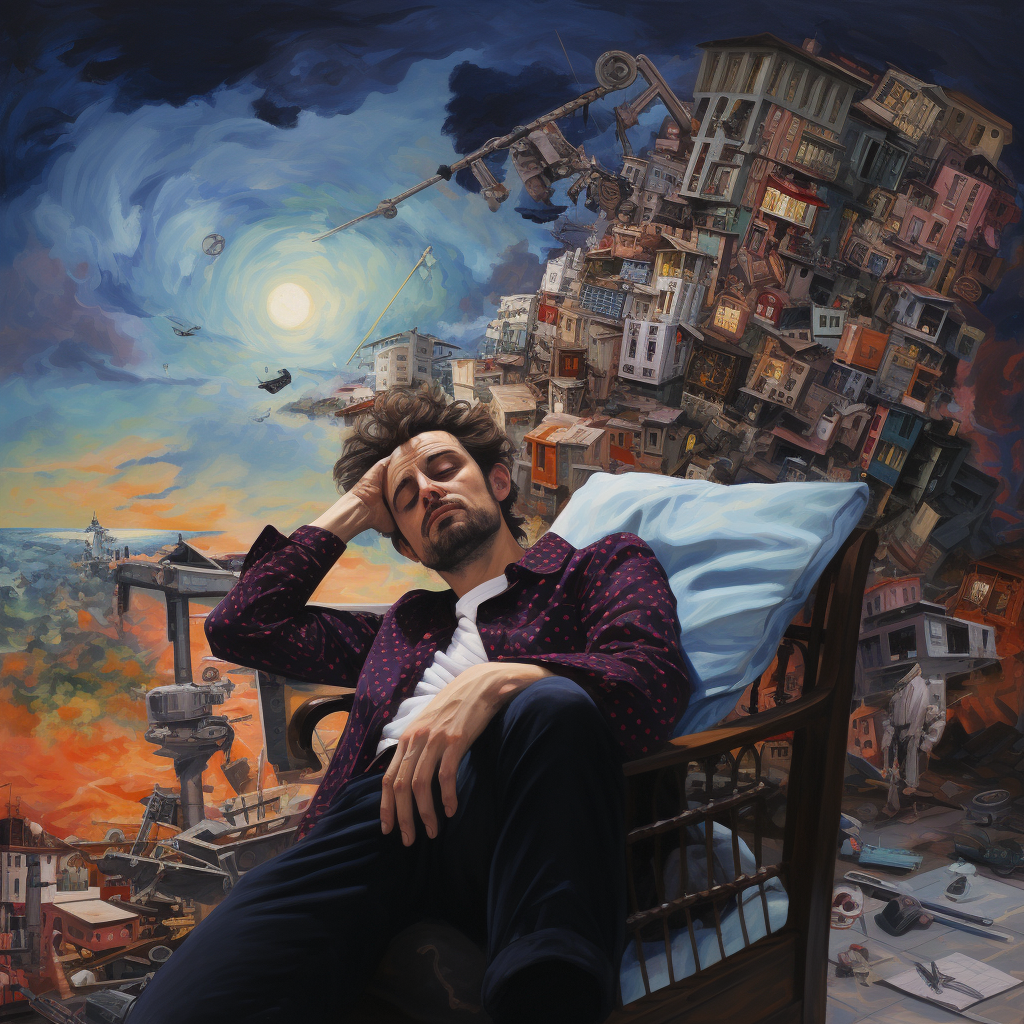
Emily’s words rang with a candid honesty that rendered Andrew silent for a moment. His eyes, usually brimming with a restless curiosity, softened with introspection. He looked out to the horizon, where the sun was beginning to paint the evening sky, and for a moment he let himself be swallowed by the silence.
“Emily,” he finally began, his voice barely above a whisper, “I’m lonely. I live in a world filled with questions and abstractions. The answers I seek only birth more questions, like an infinite tapestry of paradoxes. And I fear… I fear I’ve become trapped within these threads.”
Emily listened quietly, her gaze steady on the young man. He had always been different, she knew, but his intellectual pursuits had always been tinged with an endearing eccentricity. Yet now, as he laid bare his solitude, she saw the toll this isolation was taking on him.

“And it’s not just about definitions,” he continued, “It’s about connection. When I dissect everything, I… I lose people. I see it in their eyes – confusion, frustration… distance. It’s as though I’ve crafted my own loneliness.”
He paused, clasping his hands in an unconscious display of tension. “You speak of feelings, of experiences. I admit… I admit that I find them baffling. I’m always looking for their meaning, their essence, their precise definition. But perhaps… perhaps I have been wrong. Perhaps I’ve overlooked something crucial in the process.”
A shroud of melancholy seemed to have descended upon him, an admission of vulnerability that was a far cry from his usual abstract discourses. Emily felt a pang of sympathy, but also a glimmer of hope. It wasn’t every day that Andrew questioned his own perspectives so openly.
“Emily,” he said, finally turning to meet her gaze, “I don’t know how to escape from this philosophical labyrinth I’ve constructed. I don’t know how to… how to simply live. Can you… Can you help me?”
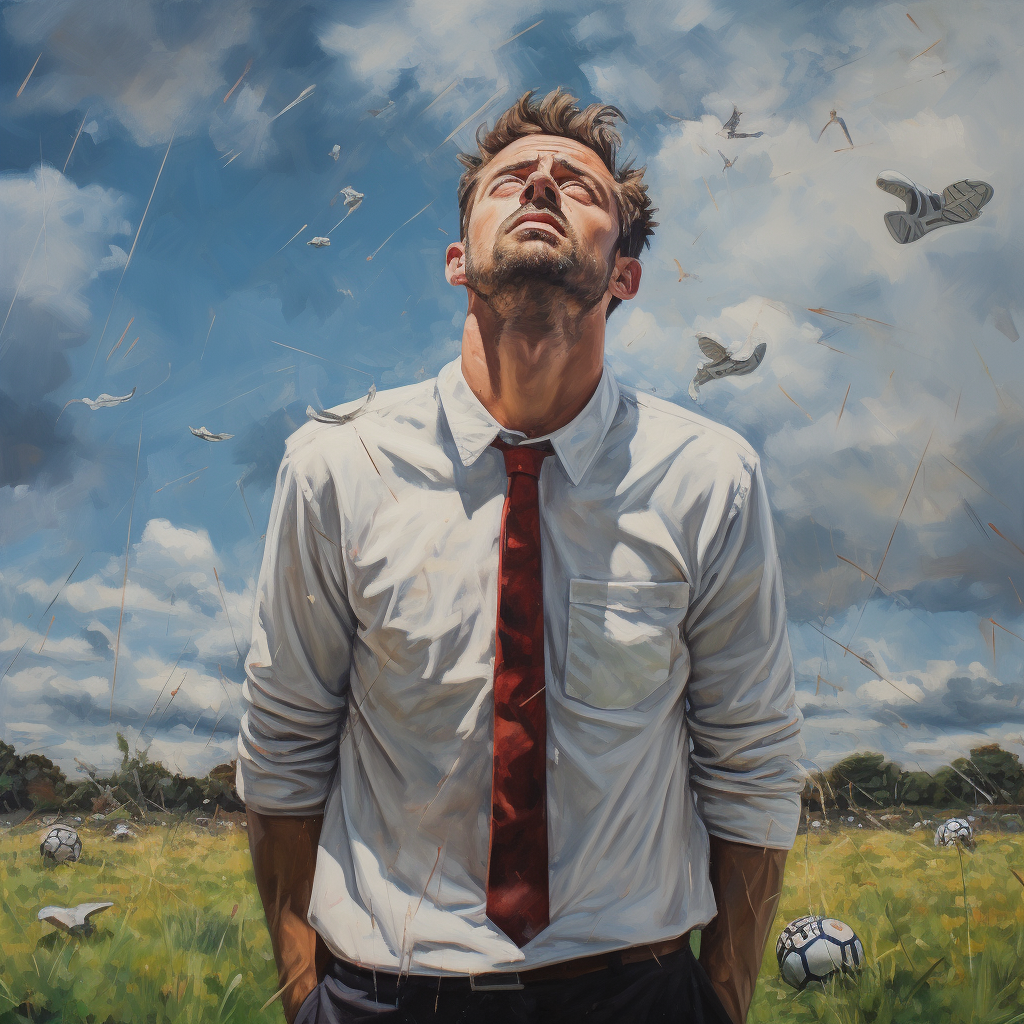
Emily looked at him, this young man who was more akin to an old philosopher, lost within the depths of his mind. She reached out, a soft hand touching his. The physical contact seemed to startle him, as if he was remembering sensations beyond thought.
“Andrew,” she said, her voice warm and reassuring, “we’re going to take this journey together. And you’ll see that life is not just a puzzle to be solved, but a melody to be listened to, a canvas to be painted, a dance to be danced. We’re going to find the balance between thinking and feeling, questioning and accepting, defining and experiencing.”
She gave his hand a gentle squeeze. “You are not alone, Andrew. Not anymore.” And as the sun set, the path to a new beginning emerged from the twilight shadows, filled with the promise of connection, balance, and a philosophy embedded in the heart of life.
All images generated using Midjourney
